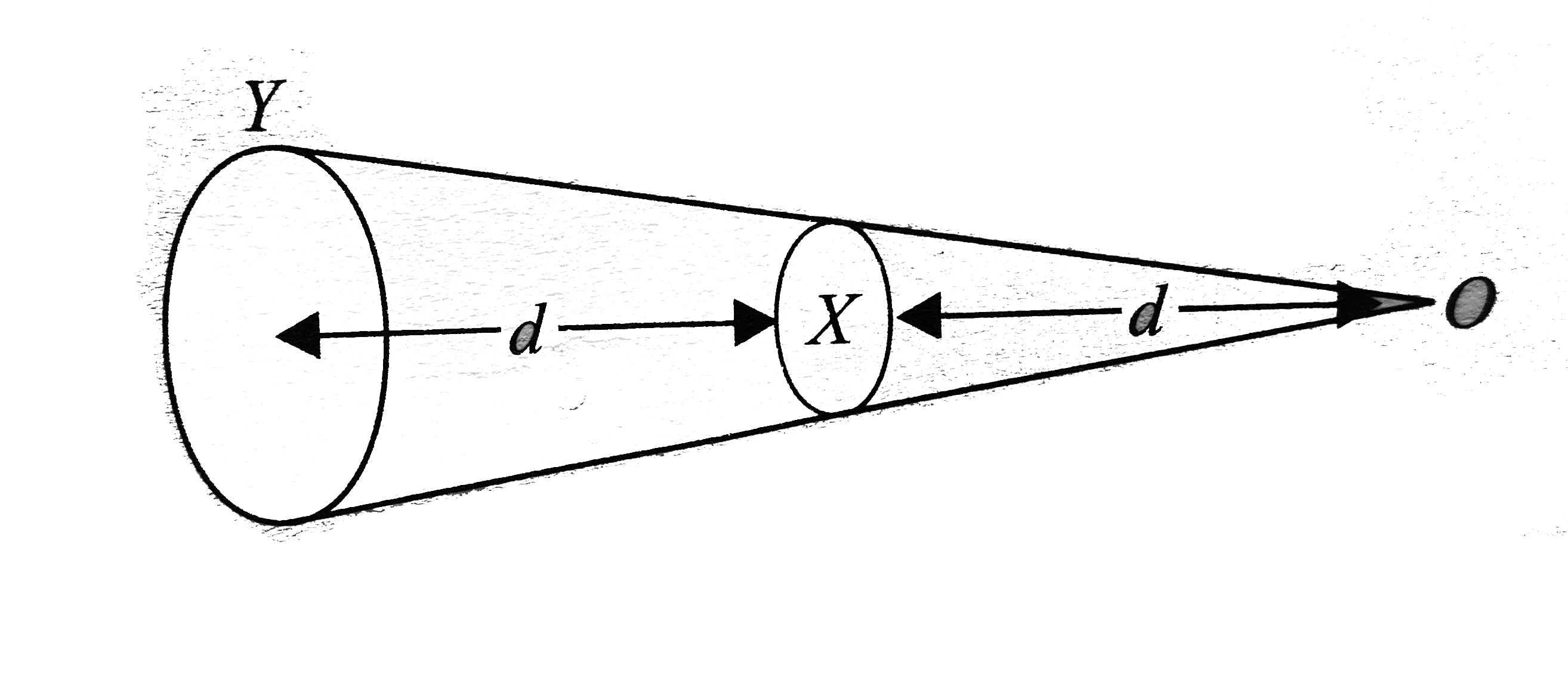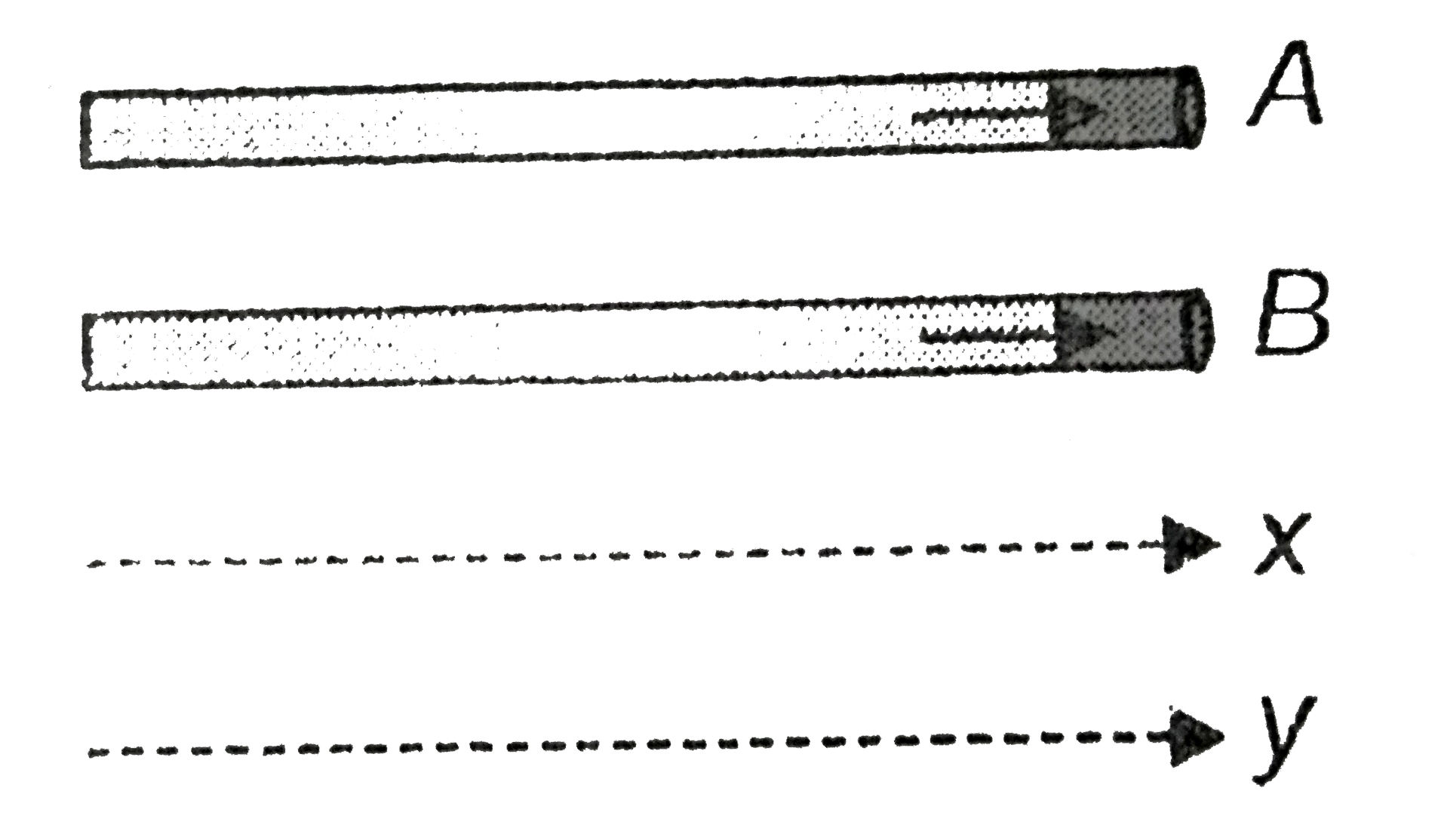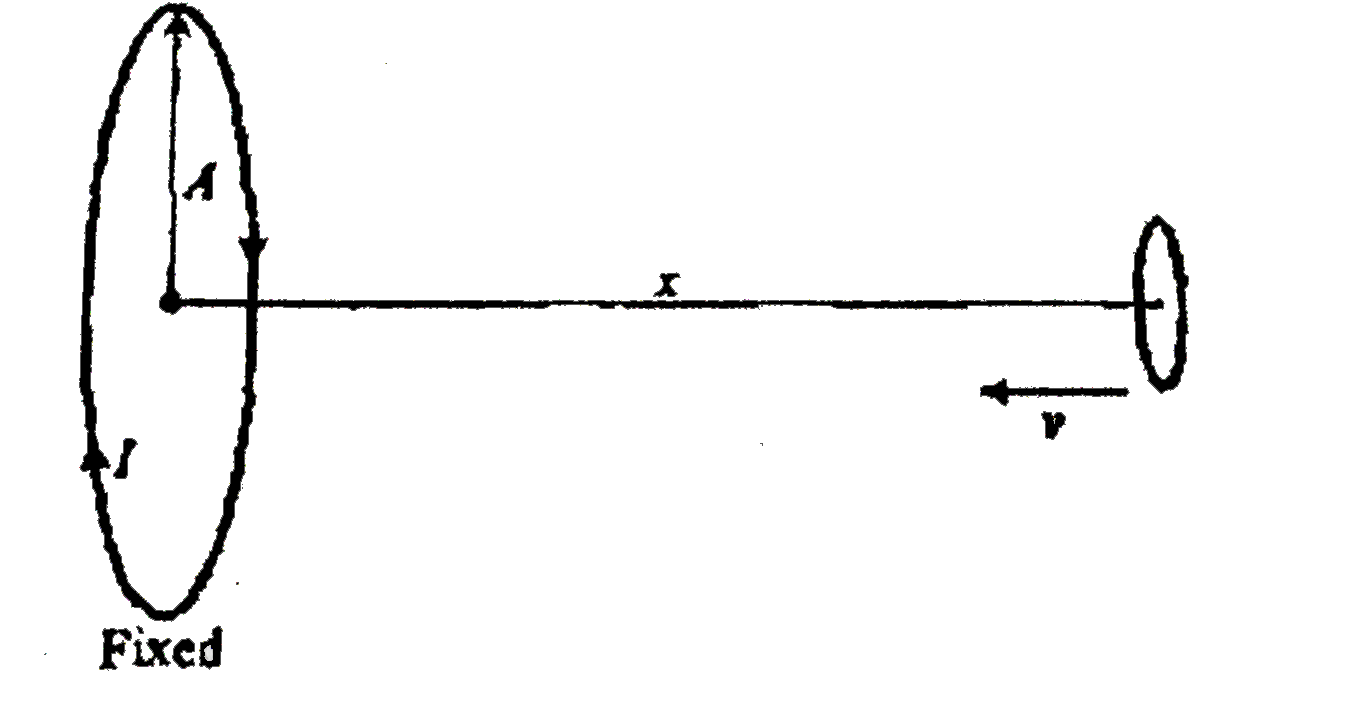Two circular coils X and Y, having equal number of turns and carrying currents in the same sense, subtend same solid angle at point O. If the smaller coil X is midway between O and Y and if we represent the magnetic induction due to bigger coil Y at O as By and the due to smaller coil X at O as Bx,then find the ratio Bx/By.

The correct Answer is:(2)
(2) By=μ04π2πI(2r)2[(2r)2+(2d)2]3/2,Bx=μ04π2πIr2[r2+d2]3/2
solve to get BxBy=2
Topper's Solved these Questions
- BOOK - CENGAGE PHYSICSCHAPTER - SOURCES OF MAGNETIC FIELDEXERCISE - Archives (fill In The Blanks)1videos
SOURCES OF MAGNETIC FIELD
- BOOK - CENGAGE PHYSICSCHAPTER - SOURCES OF MAGNETIC FIELDEXERCISE - Archives (single Correct Anser)13videos
SOURCES OF MAGNETIC FIELD
- BOOK - CENGAGE PHYSICSCHAPTER - SOURCES OF MAGNETIC FIELDEXERCISE - Exercise (linked Comprehension)21videos
SOURCES OF MAGNETIC FIELD
- BOOK - CENGAGE PHYSICSCHAPTER - SEMICONDUCTOR ELECTRONIC : MATERIALS, DEVICES AND SIMPLE CIRCUITSEXERCISE - QUESTION BANK12videos
SEMICONDUCTOR ELECTRONIC : MATERIALS, DEVICES AND SIMPLE CIRCUITS
- BOOK - CENGAGE PHYSICSCHAPTER - THERMAL PROPERTIES OF MATTEREXERCISE - Question Bank40videos
THERMAL PROPERTIES OF MATTER
Similar Questions
Two coplanar concentric circular coils of radii r and 2r, have the same number of turns n. The smaller coil carries a clockwise current i, while the larger coil carries an anticlockwise current 2i. The magnetic field induction at the centre is
View SolutionA and B are two conductors carrying a current i in the same direction x and y are two electron beams moving in the same direction. There will be
 View Solution
View Solution
Knowledge Check
- Question 1 - Select One or More
Two circular coils A and B with their centres lying on the same axis have differents in the same sence. The coil B lies exacity midway between coil A and the point P. The magnetic field at point P due to coils A and B is B1 and B2 respectively.
AB1>B2BB1<B2CB1B2=2DB1B2=12 - Question 2 - Select One
A and B are two conductors carrying a current I in the same direction, X and y are two electron beams moving in the same direction. Then there will be
 Aattraction between A and B, repulsion between x and yBrepulsion between A and B, attraction between x and yCattraction between 4 and B and r and yDrepulsion between A and B and x and y
Aattraction between A and B, repulsion between x and yBrepulsion between A and B, attraction between x and yCattraction between 4 and B and r and yDrepulsion between A and B and x and y - Question 3 - Select One
A circular coil of radius 'r' having 'n' turns carries a current 'I'. The magnetic induction at the center of the coil is 'B'. Now the coil is unwound and rewound with half the original radius. If the magnetic induction at the center of the coil is to be the same, the current that should be passed through the coil is
A2iBiCi/2Di/4
Figure-5.77. shows a fixed coil of N turns and radius a carrying a current I. At a distance x from its centre another small coaxial coil of radius b(b<<a) and resistance R is moving toward the first coil at a uniform speed v. Find the induced current in smaller coil.
 View Solution
View SolutionTwo current carying circular coils A and B, having the same number of turns are connected in series. What is the ratio of the magnetic inductions produced at their centres, in the diameters of A and B are 10 cm and 20 cm respectively ?
View SolutionA long wire carrying a steady current is bent into a single coil such that magnetic induction at centre is B. Then same wire is bent to form a coil of smaller radius of 4 turns when magnetic induction at centre is B'. Then
View SolutionTwo circular coils are made of two identical wires of same length and carry same current. If the number of turns of the two coils are 4 and 2, then the ratio of magnetic induction at the centres will be
View SolutionA wire in the from of a circular loop of one turn carrying a current produces a magnetic fild B at the centre. If the same wire is looped into a coil of two turns and carreis the same current, the new value of magnetic induction at the centre is
View Solution

